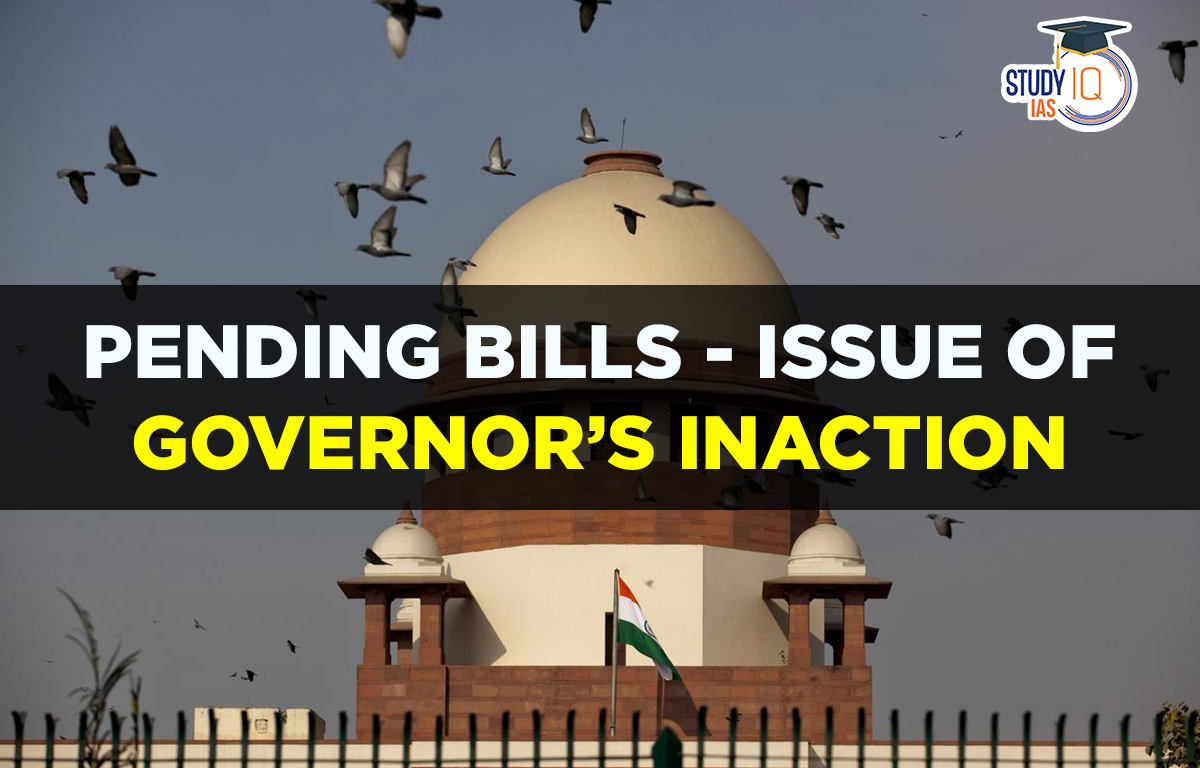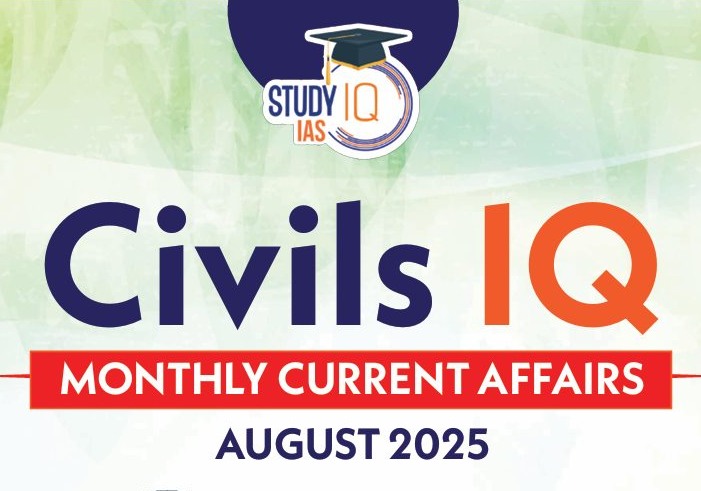Table of Contents
Context: The Tamil Nadu Governor was in the news recently when the Tamil Nadu Assembly passed a resolution urging the President of India, to fix a timeline for assent to be given to Bills passed by the Assembly.
Background on the Issue
- The Tamil Nadu Assembly adopted a Bill granting exemption from the mandatory National Entrance-cum-Eligibility Test (NEET) for seats allotted by the Government in undergraduate medical and dental courses in Tamil Nadu.
- The Governor returned the Bill, contending that the State Assembly is not competent enough to frame a law on the subject.
- A recent resolution by the Tamil Nadu Assembly urged the President of India to fix a timeline for assent to be given to Bills passed by the Assembly.
- The Assembly has faced several pending Bills as the Governor has not made any decision.
- The Governor of Tamil Nadu has been under scrutiny for not making a decision on Bills passed by the Assembly, citing their possible transgressions of constitutional limits
Constitutional Position of the Governor
- Article 153: Article 153 of the Indian Constitution mandates the appointment of a Governor in each state. The 7th Amendment to the Constitution however, allows for the appointment of the same person as Governor of two or more states.
- Article 154: The Governor shall have executive power over the state, which he shall exercise either directly or through officers subordinate to him in conformity with this Constitution.
- Article 163: There shall be a council of ministers, led by the Chief Minister, to assist and advise the Governor in the exercise of his powers, except when he is compelled to execute his functions at his discretion.
- Article 164: The council of ministers is collectively responsible to the state’s legislative assembly. This provision is the cornerstone of the state’s parliamentary system of governance.
The Constitutional Power of the Governor related to State Bills
- What Article 200 says: The Constitution provides certain options for the Governor to exercise when a Bill reaches him from the Assembly.
- Article 200 of the Indian Constitution deals with the Governor’s powers in relation to assenting to legislation enacted by the State legislature and other functions of the Governor such as reserving the bill for consideration by the President.
There are Four Possible Scenarios:
- Assent: He may give assent.
- Reconsider: He can send it back to the Assembly requesting it to reconsider some provisions of the Bill, or the Bill itself. In this case, if the Assembly passes the Bill without making any change and sends it back to the Governor, he will have to give assent to it.
- Reserve: The third option is to reserve the Bill for the consideration of the President.
- Withhold: The fourth option, of course, is to withhold the assent.
Supreme Court Observations on Governor’s Powers and Responsibilities
1. Purushothaman Nambudiri vs State of Kerala (1962):
- The Constitution does not impose a time limit for the Governor to provide assent to Bills.
- The Governor must act in harmony with the Council of Ministers and honour the will of the Legislature.
- Withholding assent to a law validly passed by the Legislature directly attacks the federal edifice of the Constitution.
- Delaying the assent to Bills is an arbitrary exercise against the spirit of the Constitution.
2. Shamsher Singh vs State of Punjab (1974):
- The President and Governor can exercise their formal constitutional powers only upon the advice of their Ministers.
- There are a few well-known exceptions to this rule.
3. Nabam Rebia case (2016):
- The Governor has no function to execute on their own but has certain duties to perform.
- The Governor cannot act against or without the advice of their Council of Ministers.
- Article 163 of the Constitution does not give the Governor a general discretionary power.
4. Rajiv Gandhi assassination case (2018):
- The Governor’s failure to act on the release of seven convicted prisoners for more than two years caused displeasure to the Supreme Court.
Veto over State Bills
- The governor is empowered to reserve certain types of bills passed by the state legislature for the consideration of the President.
- Then, the Governor will not have any further role in the enactment of the bill.
- The President can withhold his assent to such bills not only in the first instance but also in the second instance.
- Thus, the President enjoys absolute veto (and not suspensive veto) over state bills.
- Further, the President can exercise pocket veto in respect of state legislation also
What are the underlying causes of this disturbing trend?
- Presidential Assent: The provision concerned makes it clear that a Bill can be reserved for the consideration of the President only if the Governor forms an opinion that the Bill would endanger the position of the High Court by whittling away its powers. The Constitution does not mention any other type of Bill which is required to be reserved for the consideration of the President.
- No remedy: The Indian Constitution, however, does not provide any such remedy as that of the USA or UK. The courts too have more or less accepted the position that if the Governor withholds assent, the Bill will go. Thus, the whole legislative exercise will become fruitless. It does not square with the best practices in old and mature democracies.
- Political appointment: This is because Governors have become political appointees. Politicians become Governors and then resign to fight elections.
- Nature of appointment: In the Constitution, there are no guidelines for exercise of the Governor’s powers, including for appointing a CM or dissolving the Assembly.
- Security of Tenure: There is no provision for impeaching the Governor, who is appointed by the President on the Centre’s advice. While the Governor has a 5-year tenure, he can remain in office only until the pleasure of the President.
- Powers in legislation: There is no limit set for how long a Governor can withhold assent to a Bill.
Implications
- Constitutional interpretation: The issue highlights the need for a clear and consistent interpretation of relevant articles in the Constitution, such as Article 200 and Article 355, to avoid confusion over the Governor’s powers and responsibilities.
- Federalism: The issue raises questions about the balance of power between the central government and state governments, emphasizing the need to ensure that state governments can function without undue interference.
- Role of the judiciary: The issue underscores the important role of the judiciary in interpreting and enforcing the Constitution, and the need for a judicial pronouncement to clarify the Governor’s powers and responsibilities.
- Political accountability: Pending bills and gubernatorial inaction can disrupt the functioning of the state government and delay important legislation, highlighting the need to hold elected representatives accountable.
- Impact on governance: The issue has the potential to negatively impact governance and erode public confidence in democratic institutions by creating a sense of uncertainty and instability.
Way Forward
1. Need to revive constitutional morality
- It was famously said by Ambedkar and President Narayanan later that the fault is not with the Constitution but between those who run it.
- There have been many occasions when the Centre has consulted a Chief Minister before appointing a Governor. This convention must be restored.
2. Suggested by Sarkaria Commission
- Positive examples of cordiality between the constitutional office of Governor and that of the elected office of Chief Minister must be highlighted.
3. Maintaining delicate balance, envisaged between the Centre and States in the Constitution
- By adopting the process of consultations and enlightened deliberations between the Governor and the Chief Minister.
- Discretion of the governor must be bound by procedure and a code of conduct should be established to limit the arbitrary discretion.
4. Judicial Pronouncement:
- Given the confusion and lack of clarity regarding the options available to the Governor under Article 200, a judicial pronouncement is needed to eliminate the ambiguity and provide guidance to the Governor.
5. Constitutional Amendment:
- The scope and range of Article 355 should be widened to ensure that the Governor acts in accordance with the Constitution and does not sit on Bills indefinitely, thereby creating a situation where governance of the state cannot be carried on in accordance with constitutional provisions..
Conclusion
- In order to establish cordial relations, the recommendations of Sarkaria Commission, Punchhi Commission and Justice V.Chelliah Commission must be implemented. Supreme Court in the Nabam Rebia judgment (2016) ruled that the exercise of Governor’s discretion Article 163 is limited and his choice of action should not be arbitrary or fanciful. It must be a choice dictated by reason, actuated by good faith and tempered by caution – the same should be implemented in letter and spirit


 MP Police Constable Admit Card 2025 Out ...
MP Police Constable Admit Card 2025 Out ...
 UPPSC PCS Cut Off 2025: Check Expected a...
UPPSC PCS Cut Off 2025: Check Expected a...
 Diwali 2025 Calendar: Dhanteras to Bhai ...
Diwali 2025 Calendar: Dhanteras to Bhai ...




















